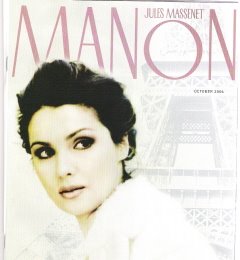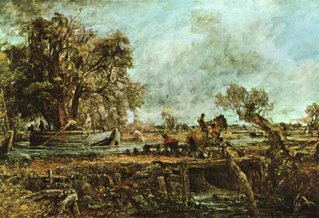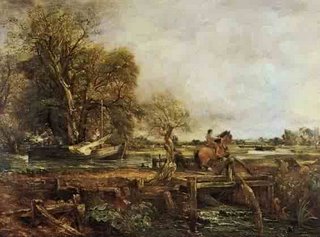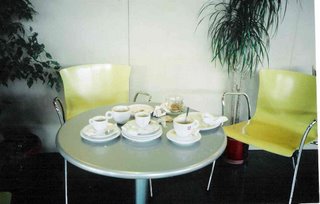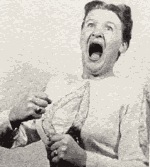Favorite Performances
- London: The Bartered Bride by Smetana at the ROH with Charles Mackerras conducting. This is one of the operas I sang in when I lived in Germany, and Charles Mackerras's version is definitive. Long ago he came to San Francisco to conduct. I remember vividly when he conducted Der Rosenkavalier in SFO. The production was also excellent. Travel **
- London: Ralph Vaughan Williams' Sir John in Love at the ENO When would I ever get a chance to see this live? Once in a lifetime. I've always had a soft spot for Williams. We will look back on this as the golden age. Travel **
- London: Osvaldo Golijov's The Passion According to St. Mark Another once in a lifetime. The composer has since modified this work, but I heard it with a South American choir. Exciting. Travel **
- London: Tchaikovsky’s Eugene Onegin with Villazon and Hvorostovsky ROH London ** For the guys. Travel
- Rome: Franco Alfano's La Leggenda di Sakùntala in Rome [I just found out this was the first performance of the original version of this opera after the score was found in 2005.] I briefly popped down to Rome from London. Rome Opera is stagione, which means at any given time only one opera is playing. Strange as this may sound, I also saw another opera by Alfano in London that year-- Cyrano de Bergerac. This may have been my first encounter with Sondra Radvanovsky and included a conversation with her husband. Travel **
- Neruda Songs CD with Lorraine Hunt Lieberson You want these songs--magnificent very real romance--only in this version sung by the composer's wife. CD
- San Francisco: Tchaikovsky's The Maid of Orleans with Dolora Zajick SFO This was playing in San Francisco when I happened to be there, and was simply magnificent. I don't know why it isn't done more often. Perhaps you need Dolora Zajick. Travel ** ##20
- (AN) The Salzburg La Traviata with Netrebko and Villazon This production hasn't worked for the other sopranos like it worked for Netrebko. See this one, skip the others. It is simply spectacularly good. This was not my first Netrebko. I was already a huge fan long before I started blogging. As a long time subscriber to the San Francisco Opera, I first saw her in Ruslan and Lyudmila in 1995. I vividly remember her bursting on the stage as Musetta in La Boheme, probably in 2004. She was very memorable from the beginning. DVD

- (AN) Anna Netrebko in Massenet's Manon in LA After seeing her in San Francisco and on DVD for years, I flew to Los Angeles to see her Manon. I wasn't sure she could do this, but she very much exceeded my expectations. Netrebko is so insanely famous now because of her work in this period. This production with the same cast appears on DVD from Berlin, highly recommended. Travel ** ##20
- (AN) Netrebko's Russian Album CD If you haven't heard this, you simply have no idea. It is great Russian music by great Russian artists. CD
Singer of the year
Anna Netrebko creates her spectacular La Traviata, Manon and The Russian Album in a single year. Few artists can point to such an achievement.
Didn't Like
I didn't care for the L'Orfeo from the ENO because the staging was incoherent, or for Sophie's Choice for bad vocal writing and just bad music. I didn't feel the DVD production for El Niño worked at all.
New to Me Opera
There was a long list of new operas this year, including a lot of musicals seen in London. I was researching unknown Rossini as well:
- Adams El Niño (2000) was a DVD.
- Alfano's Cyrano de Bergerac (1936) (live in London) **
- Alfano's La Leggenda di Sakùntala (1921)(live in Rome) **
- Bee Gees' Saturday Night Fever, musical was live in London. **
- Handel's Semele (1744)(live in New York) **
- Janáček's Jenufa (1904) was a DVD
- Elton John's The Lion King, musical, was live in London. **
- Krieger's Dreamgirls musical was a movie.
- Maw's Sophie's Choice (2002)(live in Washington) No thank you. **
- Monteverdi's Il Ritorno d'Ulisse in Patria (1640) was a DVD.
- Monteverdi's L'Orfeo (1607) was live in London. **
- Offenbach's La Belle Hélène (1864) (live in London) **
- Prokofiev's Betrothal in a Monastery (1946) was a DVD with Netrebko.
- Rossini's Ermione (1819) was a DVD.
- Rossini's Bianca e Falliero (1819) was a DVD.
- Rossini's Tancredi (1813) was a DVD
- Rossini's The Siege of Corinth (1826) (live in Baltimore) **
- Shaiman's Hairspray musical was live in New York. **
- Sondheim's Into the Woods (1987) was a DVD.
- Tchaikovsky's The Maid of Orleans (1881) (live at SFO). ** ++
- Webber's The Woman in White, musical was live in London. **
- Weir's A Night at the Chinese Opera (1987)(live in London) **
- Williams' Sir John in Love (1929) (live in London) **
##20 top 20 all time

